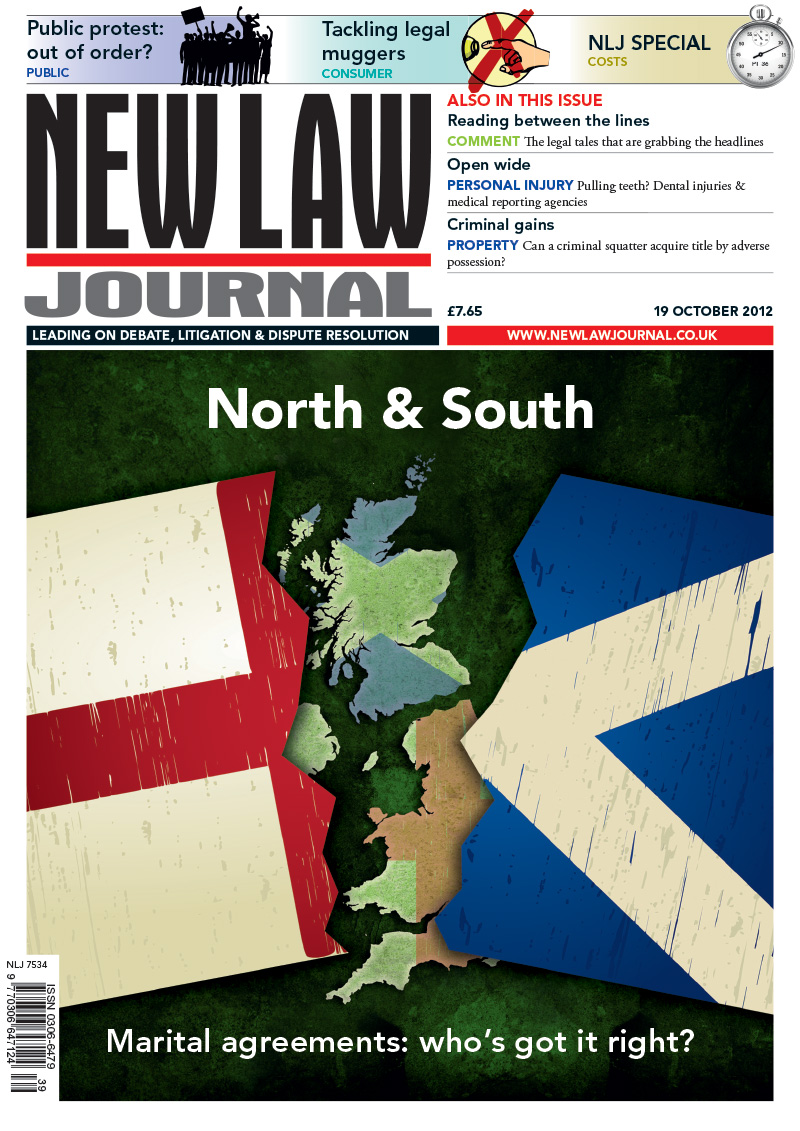
Roger Smith peruses the legal stories hitting the headlines
Is our right to protest under threat, asks Ruth Brander
Marital agreements: who’s got it right? Kate Molan & Sarah Caroline Boyle
Heather Beckett highlights the complexities of dental injuries & medical reporting agencies
Can a criminal squatter acquire title by adverse possession? Christopher Cant investigates
Victims of misleading & aggressive demands for payment need protection, say David Hertzell & Amy Smith
Bill Gibson emphasises the importance of file maintenance to costs recovery
Charlie Clarke-Jervoise explores the brave new world of costs management
Clive Thomas emphasises the importance of the careful drafting of Pt 36 offers
James Sharpe provides an update on costs protection & protected parties
MOVERS & SHAKERS

Jackson Lees Group—Jannina Barker, Laura Beattie & Catherine McCrindle
Firm promotes senior associate and team leader as wills, trusts and probate team expands

Asserson—Michael Francos-Downs
Manchester real estate finance practice welcomes legal director

McCarthy Denning—Harvey Knight & Martin Sandler
Financial services and regulatory offering boosted by partner hires







